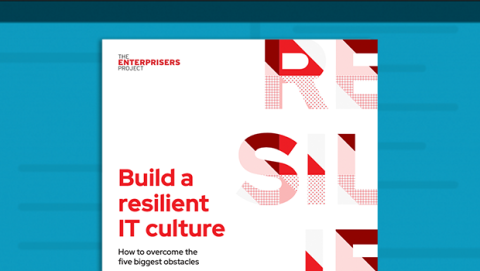CIOs are facing no shortage of big challenges in the year ahead - from the Great Resignation, to economic and supply chain issues, to ongoing pandemic-related burnout, and more. While these issues are all complex, there’s one thing that can help IT leaders - and their teams - tackle the unknowns ahead and adapt to changing priorities and obstacles in their way: Resilience.
CIOs hoping to build more resilience on their IT teams should focus more on the people elements of culture rather than on the technology, says Shabnoor Shah, principal open leadership global lead and executive coach at Red Hat.
“On one hand, there is resilient IT. Your systems, networks, and processes need to be resilient in today’s modern times,” says Shah. “But on the other hand there is a resilient IT culture, which has a lot to do with people. The teams that manage and take care of those IT systems also need to have a level of resilience.”
Building a culture of resilience is one of the non-negotiable skills for CIOs in 2023, according to John Marcante, U.S. CIO in Residence for Deloitte.
“Purpose-based individuals tend to stay with mission-based organizations and become high performers,” says Marcante. “These people will put in the discretionary effort at night that no one knows about because they care about your company and your mission. They’ll help their peers because they care about their colleagues and the clients of the organization. At the end of the day, that’s culture. You need to be a mission-based organization that attracts the right people, and you need the right culture to attract the right talent.”
A new Ebook explores the key aspects that make up resilience IT culture - as well as the five common obstacles that may be standing in the way. Learn the link between resilience and digital transformation success, how to recruit and retain resilient IT talent, and how CIOs can set the tone for their teams.
Download: Build a resilient IT culture: How to overcome the five biggest obstacles









